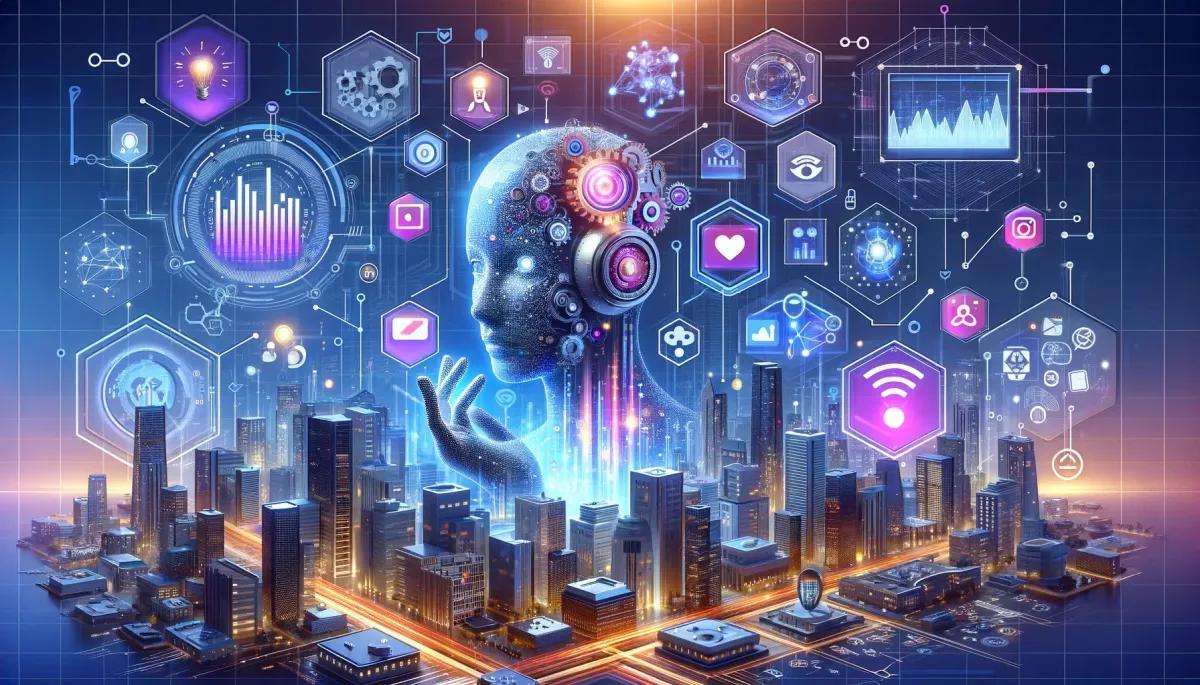
Modern Digital Marketing Strategies
"In the digital realm, change is the only constant. Harnessing this change is our canvas, and innovation is our brush." - Andries HL van Rooyen
Introduction:
In the rapidly evolving world of digital marketing, staying ahead of the curve is not just advantageous—it's essential. As technology advances and consumer behaviors shift, businesses must adopt innovative strategies to remain competitive and relevant. This blog post delves into the latest trends and modern ideas in digital marketing, offering actionable insights for businesses looking to harness the power of digital innovation.

With that said, here are 13 integrating modern ideas for digital marketing strategies.
The Power of Data Analytics
Data analytics has transformed how businesses approach marketing, allowing for incredibly targeted campaigns and a deeper understanding of customer preferences. By leveraging tools like Google Analytics, Adobe Analytics, and Tableau, marketers can dissect vast amounts of data to uncover hidden patterns, predict trends, and make data-driven decisions. Effective data analysis enables personalized marketing strategies that speak directly to the needs and desires of individual consumers. For more on data analytics tools, visit Google Analytics.
Leveraging Artificial Intelligence
Artificial intelligence (AI) is at the forefront of modern marketing innovations. AI technologies enable personalized customer interactions at scale, predictive analytics for better decision-making, and optimization of marketing campaigns in real-time. Tools like ChatGPT for customer service automation and Crayon for competitive intelligence are reshaping how businesses engage with their audiences. AI not only enhances efficiency but also creates a more engaging and personalized customer experience. Learn more about AI tools in marketing at ChatGPT Usage in Business.
Content Marketing Innovations
In today's content-saturated market, innovation is key to capturing consumer attention. Interactive content such as quizzes, polls, and interactive videos can significantly enhance engagement and provide valuable insights into consumer preferences. Platforms like Outgrow and Apester allow marketers to easily create and distribute interactive content. Additionally, ephemeral content on social platforms like Instagram and Snapchat encourages frequent interaction due to its temporary nature, keeping brands at the forefront of consumer minds. Explore interactive content creation tools at Outgrow.
Voice Search Optimization
With the rise of voice-activated devices like Amazon Echo and Google Home, optimizing for voice search has become crucial. Voice search differs significantly from traditional search; queries are more conversational and often longer. To capitalize on this trend, marketers should focus on long-tail keywords and structured data to enhance visibility in voice search results. Practical tips for optimization can be found at Voice Search Optimization Tips.
Video Marketing Trends
Video continues to be a dominant medium in digital marketing, with live streaming and storytelling emerging as powerful tools for brand promotion. Live streams on platforms like Twitch and YouTube offer real-time engagement, while storytelling through video can forge a stronger emotional connection with audiences. Brands should consider incorporating behind-the-scenes content, tutorials, and customer testimonials to build trust and community. Discover more about leveraging video content at Video Marketing Guide.
Influencer Marketing Evolution
The landscape of influencer marketing is shifting from celebrity endorsements to partnerships with micro and nano-influencers. These influencers often boast higher engagement rates and a more dedicated following due to their perceived authenticity. Brands should focus on building long-term relationships with influencers whose niche and audience align closely with their own. Effective strategies and case studies on influencer marketing can be found at Influencer Marketing Hub.
Social Media Marketing
The dynamic world of social media is constantly evolving, with platforms like TikTok and Clubhouse introducing new marketing opportunities. To stay ahead, marketers must adopt innovative strategies such as augmented reality filters and interactive stories, which can drive user interaction and enhance brand visibility. Learn how to maximize your social media presence at Social Media Examiner.
SEO Strategies for 2024
SEO is continually changing, with recent updates focusing on user experience, mobile-first indexing, and semantic search. Keeping up-to-date with Google’s algorithm changes is crucial for maintaining visibility in search results. Marketers need to prioritize fast-loading mobile designs, user-friendly content, and rich answer optimizations. Detailed insights into the latest SEO trends can be accessed at Moz Blog.
Email Marketing Automation
Automation in email marketing has revolutionized the way businesses communicate with their audiences. Tools like Mailchimp and Campaign Monitor enable personalization at scale, allowing for targeted content delivery based on user behavior and preferences. Segmentation and automation strategies not only improve engagement but also significantly increase conversion rates. Find advanced email marketing techniques at Email Marketing Automation Guide.
Augmented Reality in Marketing
Augmented reality (AR) offers immersive experiences that can dramatically enhance consumer interaction with a brand. From virtual try-ons to interactive ads, AR can provide a unique and memorable way for customers to engage with products. Brands like IKEA and Sephora have successfully integrated AR into their marketing strategies to boost consumer engagement and sales. Explore more about AR in marketing at AR Marketing Success Stories.
Sustainability in Digital Marketing
Consumers are increasingly favoring brands that demonstrate environmental responsibility. Digital marketing strategies that emphasize sustainability can not only attract a loyal customer base but also contribute positively to the brand's image. Strategies include promoting digital products, reducing server emissions, and using eco-friendly hosting solutions. Insights into green marketing practices can be found at Sustainable Marketing Practices.
Blockchain Technology
Blockchain technology offers unprecedented transparency in marketing, enhancing trust between consumers and brands. By providing a verifiable and immutable record of transactions, blockchain can help in transparency in supply chains, ad deliveries, and customer transactions. Detailed information on how blockchain can transform marketing is available at Blockchain Influence on Marketing.
Chatbots and Customer Service
Advancements in AI have made chatbots an integral part of digital marketing strategies, particularly in customer service. Chatbots can handle a vast array of customer queries in real-time, improving response rates and customer satisfaction. Platforms like Intercom and Drift provide sophisticated chatbot services that can be integrated into websites and social media platforms. Learn how to implement effective chatbots at Chatbot Implementation Strategies.
Embracing these modern ideas in digital marketing is crucial for businesses aiming to stay competitive in a digital-first world. From leveraging AI and data analytics to adopting sustainable practices, each strategy offers unique benefits that can help elevate a brand's presence in the digital marketplace. As the digital landscape continues to evolve, so too should the strategies we employ to engage and captivate our audiences.
Thank you for diving into the world of modern digital strategies with us. If you're eager to explore further and uncover additional insights, simply click on the button below. Keep innovating, keep evolving, and keep embracing the digital future!
